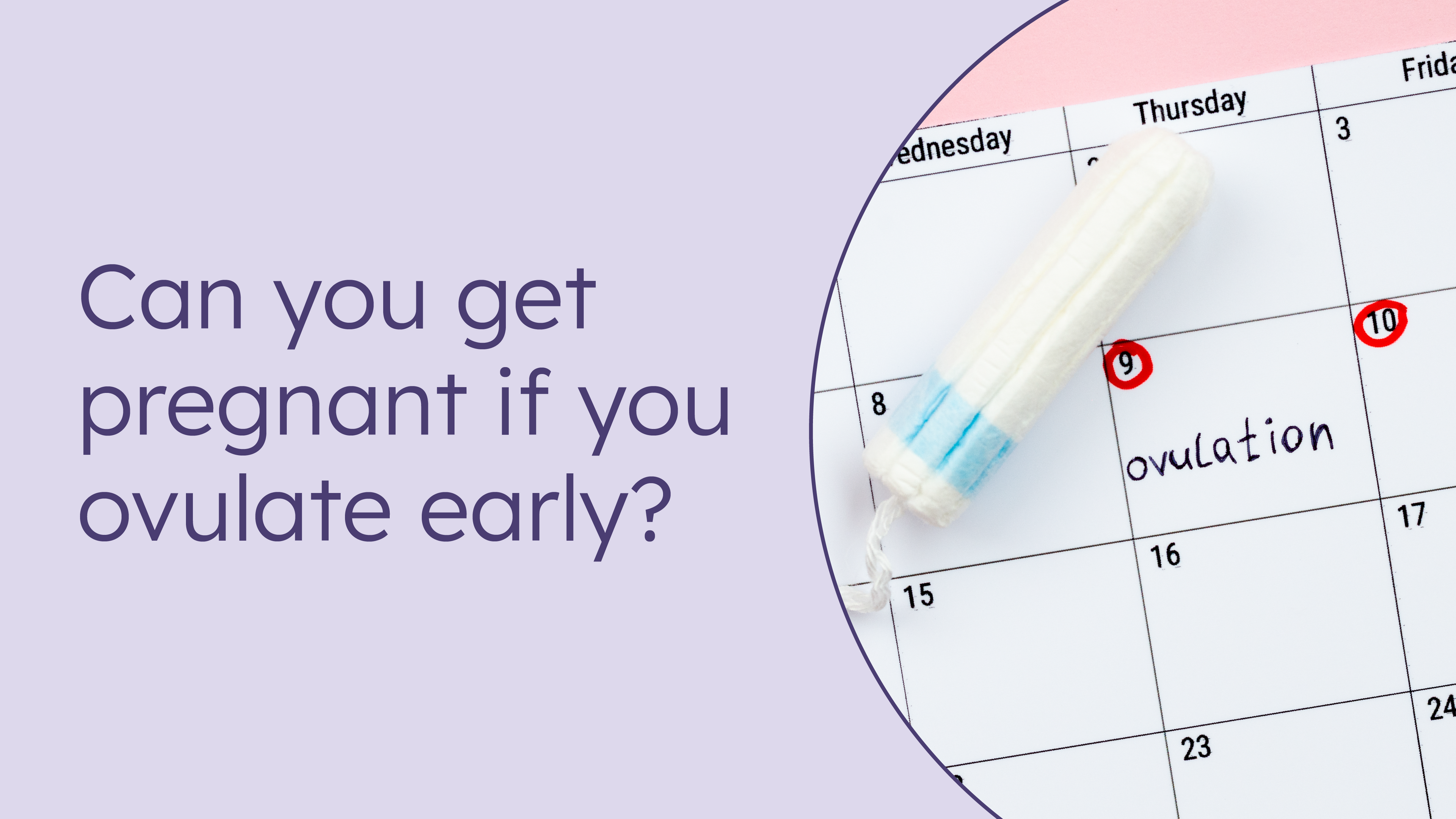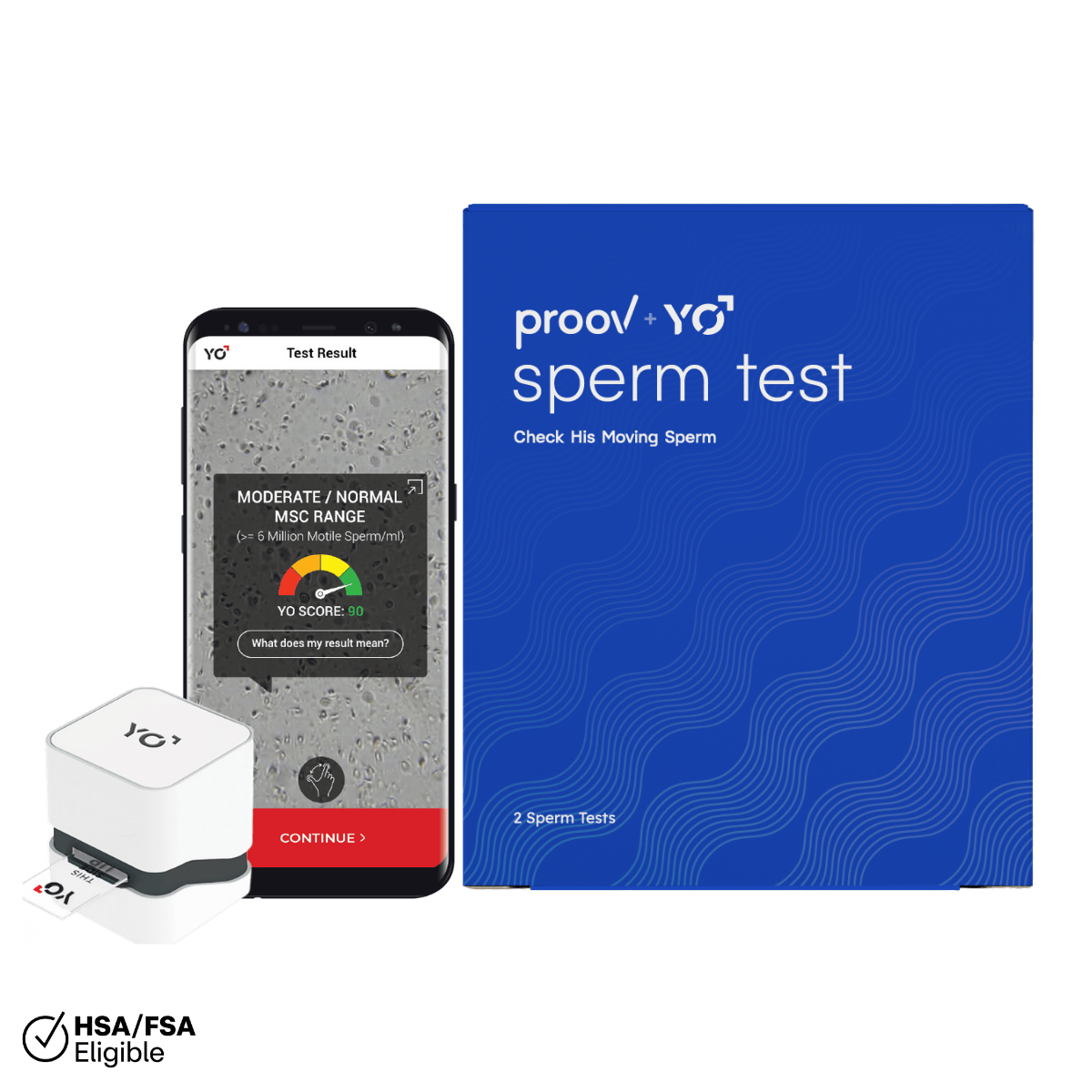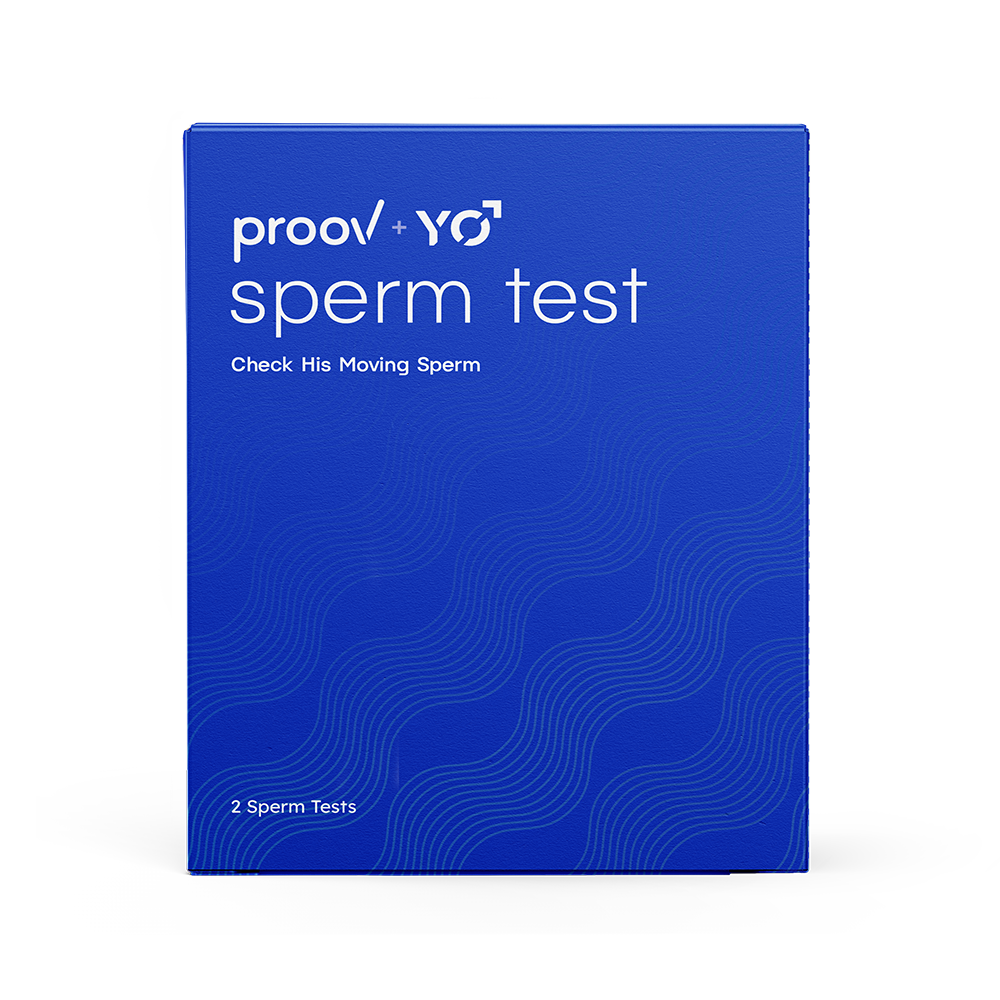In the world of fertility tracking apps, ovulation prediction, and the myth of the 28-day cycle, it’s easy to assume you’re going to ovulate at the same time, every time. But what happens when you ovulate early–can you still get pregnant?
Fortunately the answer is probably yes, but there’s a little more to it than that. To learn all about ovulation timing and how it impacts your chances of conceiving, read on!
How do I know if I ovulated early?
Before we tackle this question, let’s clear up a few things. The first important topic to cover is how do you know if you’re ovulating at all? If you’re thinking about getting pregnant or even just tracking your menstrual cycle for health, you might be using a period tracking app or counting a certain number of days from one period to the next. If that’s the case, it’s possible the app is telling you when it “thinks” you’re ovulating – usually just in the middle of your cycle.
And for the most part, these predictions may not be too far off, but studies have shown that different tracking apps will give different predictions. However, most of these predictions are based on the myth that everyone ovulates on cycle day 14 and has a 28-day cycle. So to make a long story short, to actually know if you ovulated, you’ll likely want to track ovulation with a more reliable method. More on that later!
In the meantime, though, you probably won’t know you’ve ovulated early until after the fact, when your period comes earlier than you expected it. That’s because ovulation is the determining factor of when your period is going to come! Your menstrual cycle can be thought of as several phases, and the last phase, the luteal phase, is always about the same length. So once you’ve ovulated, if you know your luteal phase length, you know when your period will come. If your period comes early, it’s probably early ovulation that’s to blame!
What causes early ovulation?
When we say “early” ovulation, what we really mean is just ovulation occuring before you expected it to. Ovulation is never actually early or late, it arrives exactly when your body is ready for it! Ovulation is the result of a series of hormonal changes, and when the timing is right, your body will release an egg.
Towards the beginning of your cycle (the start of your period), the brain will signal with follicle-stimulating hormone (FSH) that the ovaries should begin the maturation process of several follicles that could grow into eggs. After a few days, this maturation process leads to a rise in estrogen, and the brain once again signals with a different hormone, luteinizing hormone (LH), triggering the release of an egg from the ovary.
While this process usually takes around the same length of time from cycle to cycle, that initial launch of FSH may come earlier or later, and estrogen may rise more quickly or more slowly. All of this is dependent upon your overall health, stress levels, baseline hormone levels, nutrition…basically, everything in your life.
There is some evidence that sudden, high stress may cause earlier ovulation in some cases. Early ovulation could also be caused by hormonal imbalances. If you’re only ovulating early occasionally, it’s unlikely to be a problem. But if you’re consistently ovulating earlier than cycle day 10, it might be worth a chat with your physician.

How does early ovulation impact the chances of conceiving?
The good news is that early ovulation on its own seems to have minimal, if any, impact on your chances of conceiving. Some studies have found a slightly decreased chance of successful pregnancy with very early ovulation, while others have found that cycle day on conception has no impact at all.
Where consistently early ovulation may prove a problem is if it is due to an underlying hormonal condition, like polycystic ovary syndrome (PCOS) or high estrogen, that may lead to decreased fertility. It may also make timing intercourse more challenging, and if you’re ovulating earlier than you think, you may be missing ovulation entirely!

How can I predict ovulation more accurately?
So how do you know if you’re ovulating early, and how can you avoid missing ovulation entirely (which is actually a primary cause of infertility)? There are a few different methods you can use (or combine), to accurately predict ovulation and know when you’re actually fertile. These are:
- Ovulation predictor kits: urine tests that detect LH, telling you your two most fertile days. You can also use multihormone at-home fertility tests like Proov Complete, that include estrogen testing to find the entire fertile window.
- Cervical mucus/fertile ovulation discharge changes: during ovulation, your cervical mucus becomes slippery, stretchy, and clear, kind of like raw egg white. If you notice vaginal discharge like this, it’s a good sign that you’re nearing ovulation.
- Basal body temperature: This one doesn’t actually predict ovulation, but it can give you an indication that you recently ovulated. Your resting body temperature rises anywhere from 2 days before to 2 days after ovulation, so as long as you’re having intercourse regularly before that temperature shift, you’ll have a good chance of pregnancy.

Now you know: early ovulation probably means you’ll still be able to get pregnant, especially if you’re tracking ovulation and timing intercourse properly. If you haven’t gotten pregnant after several months of trying, however, you may want to consider at-home fertility testing or talking to your doctor.












